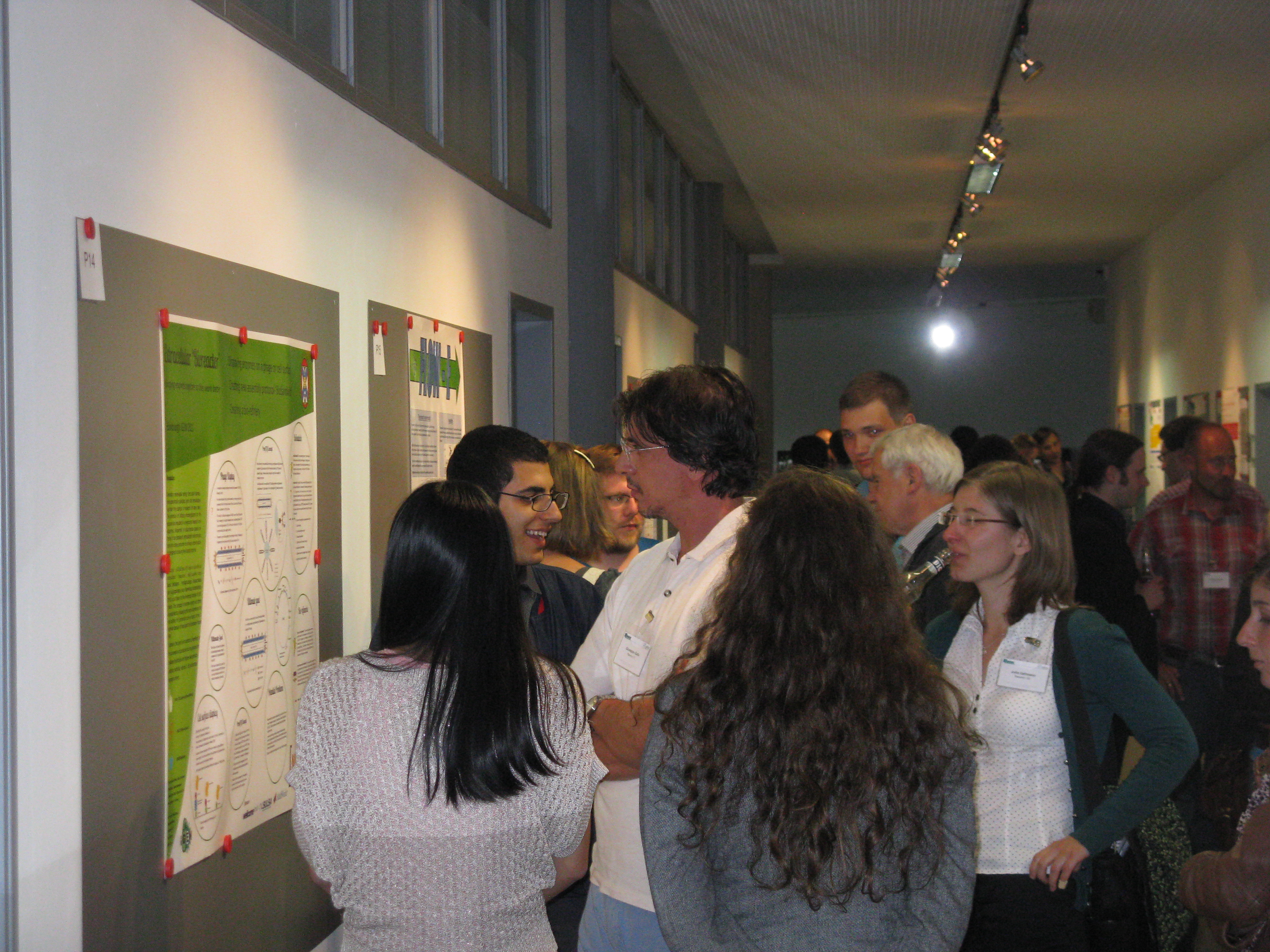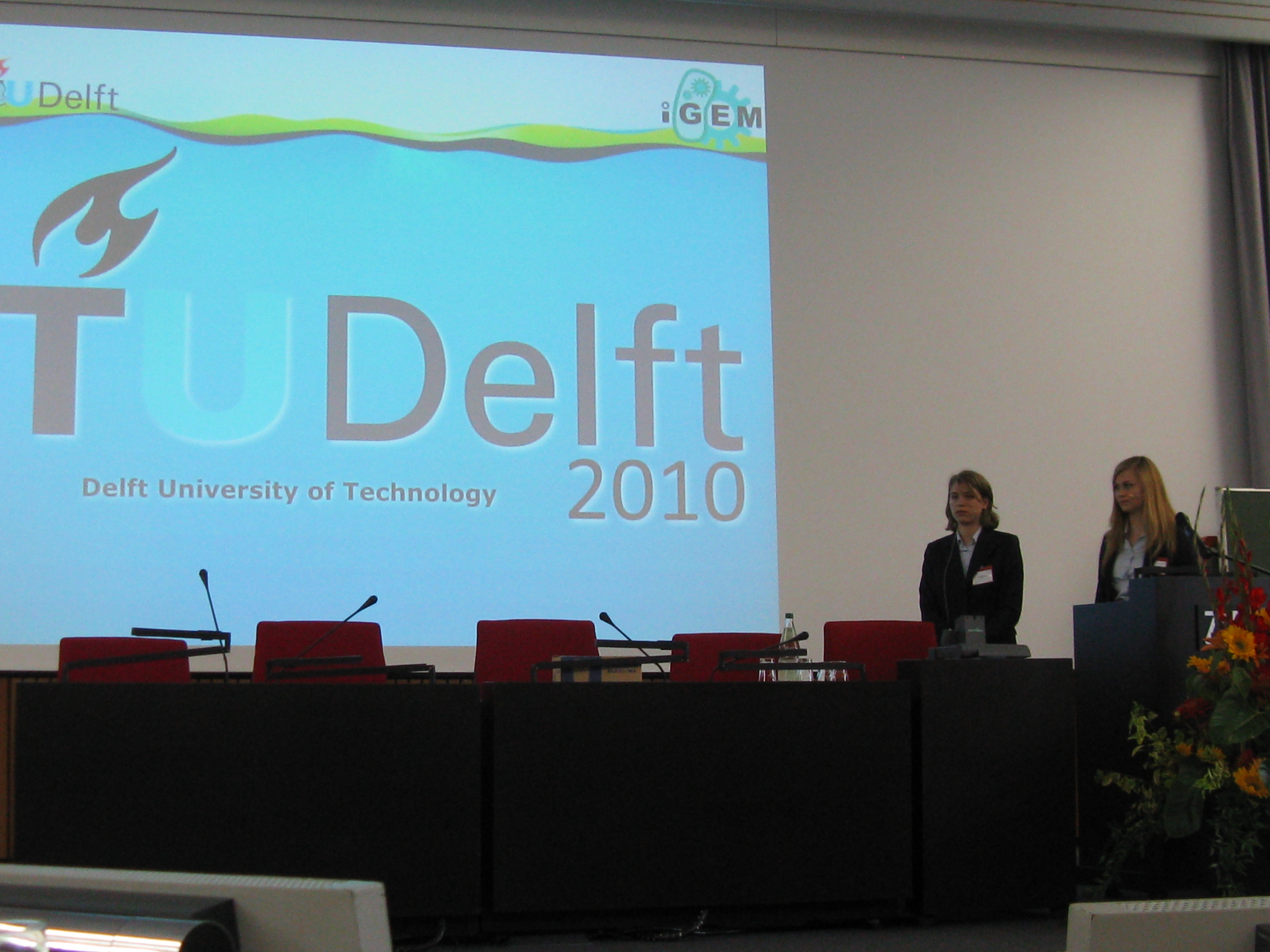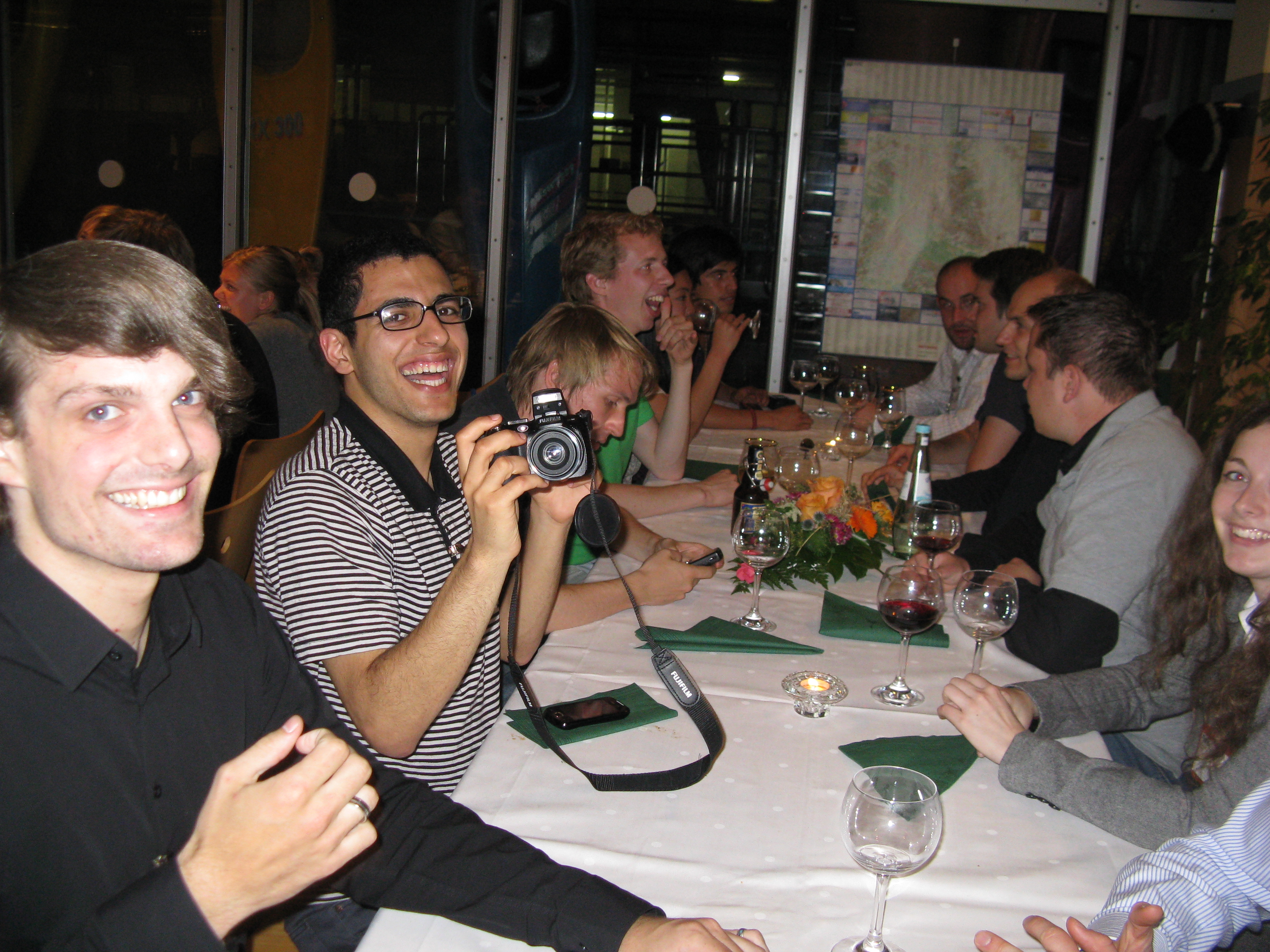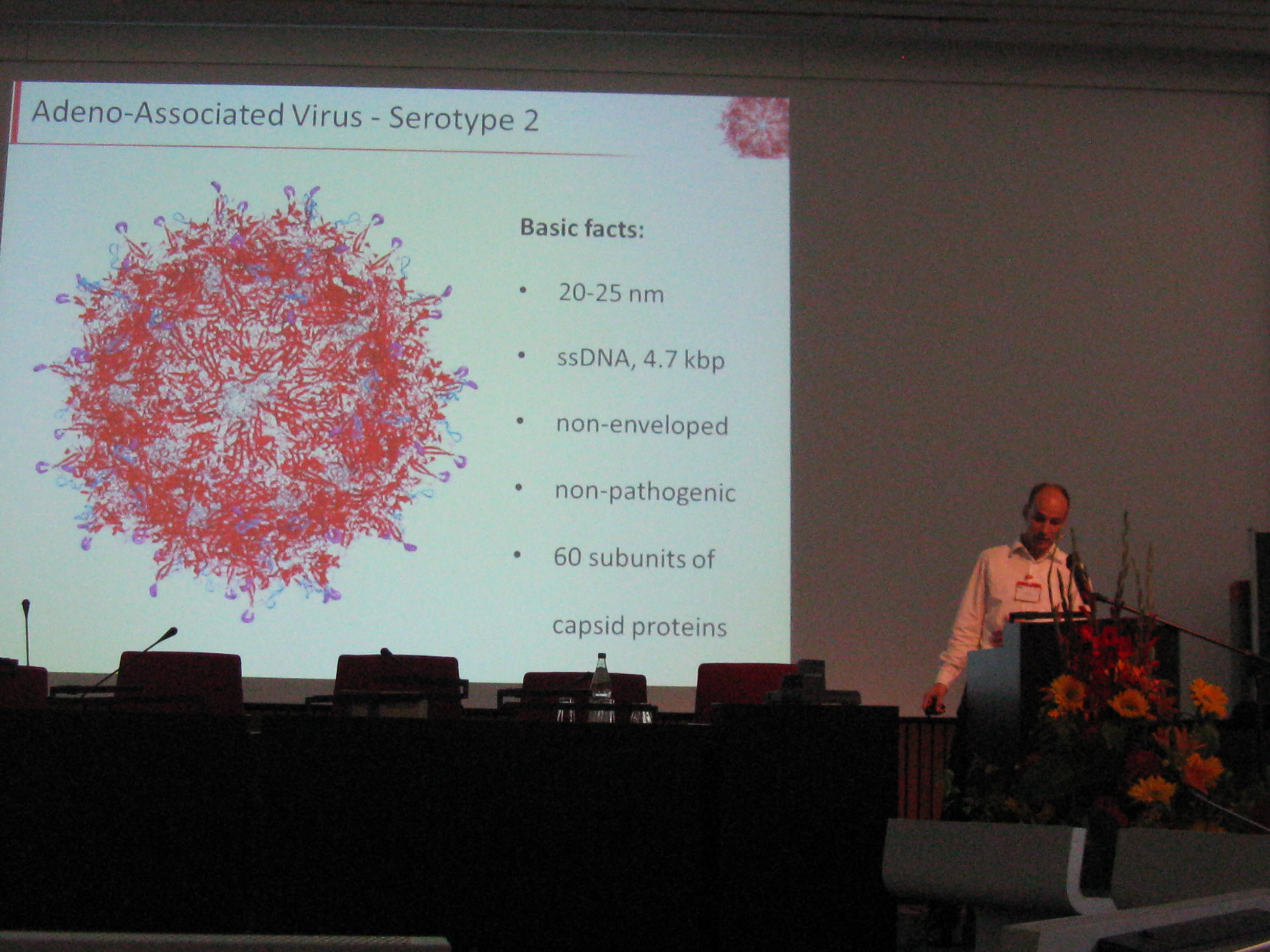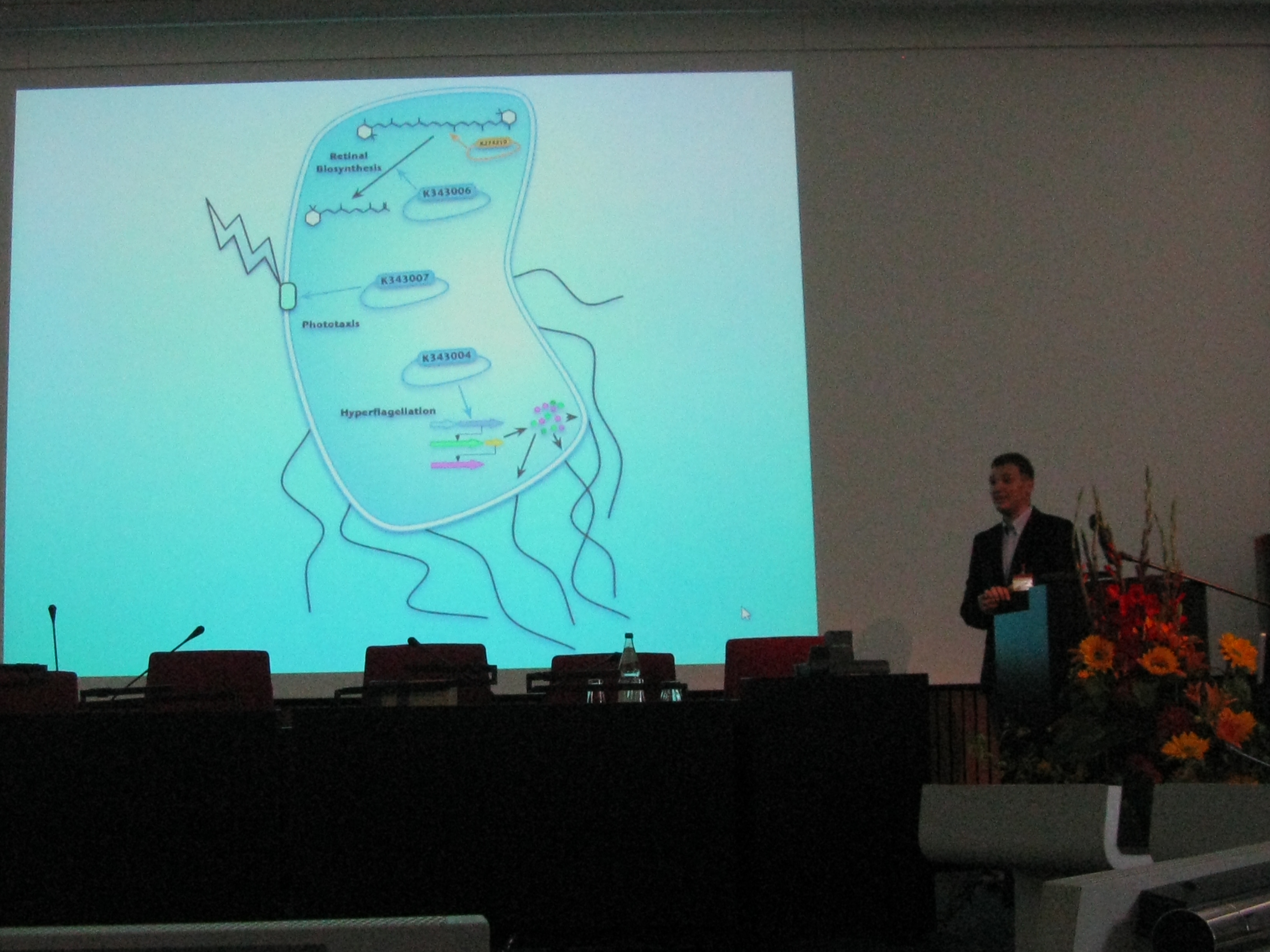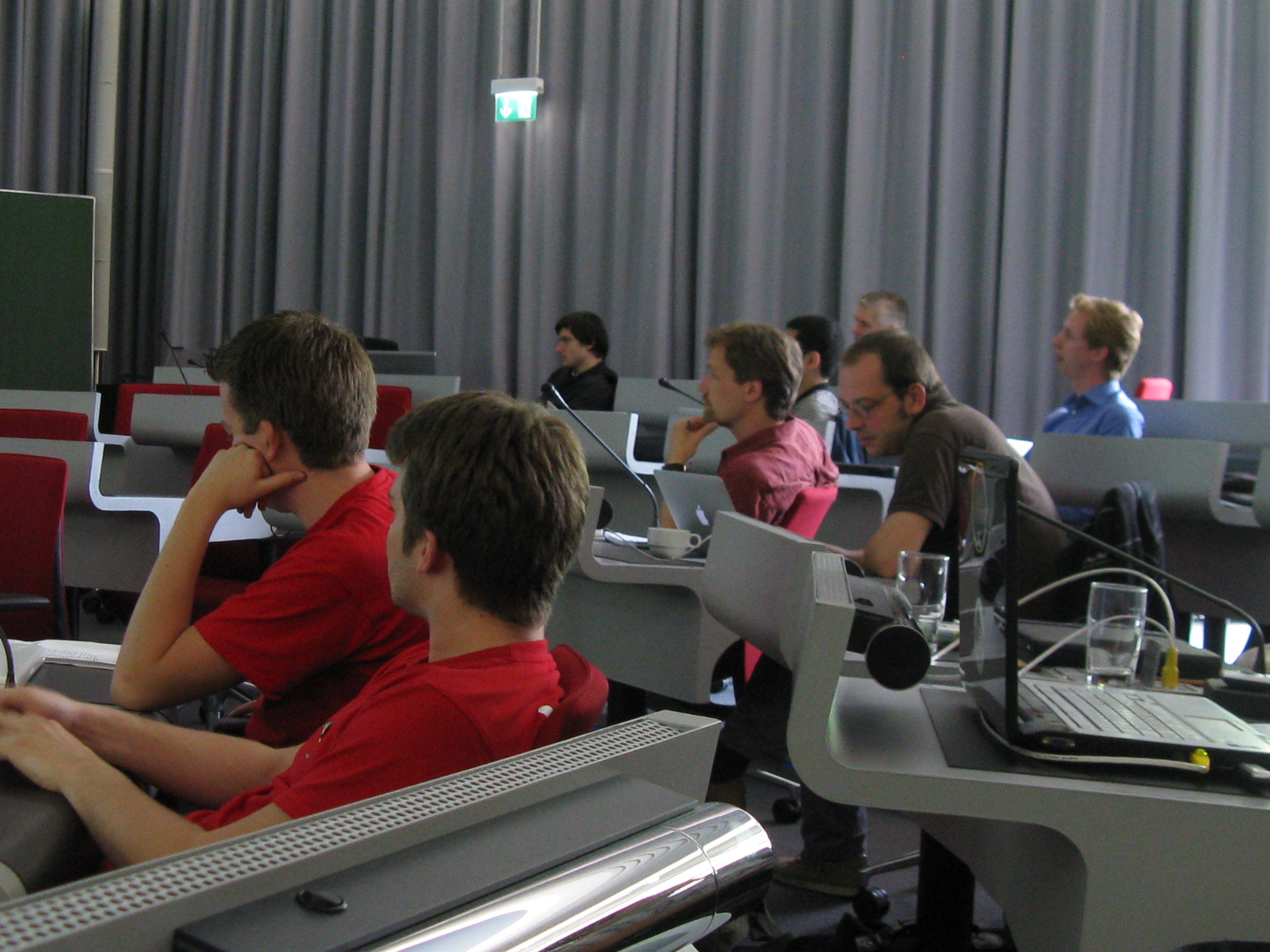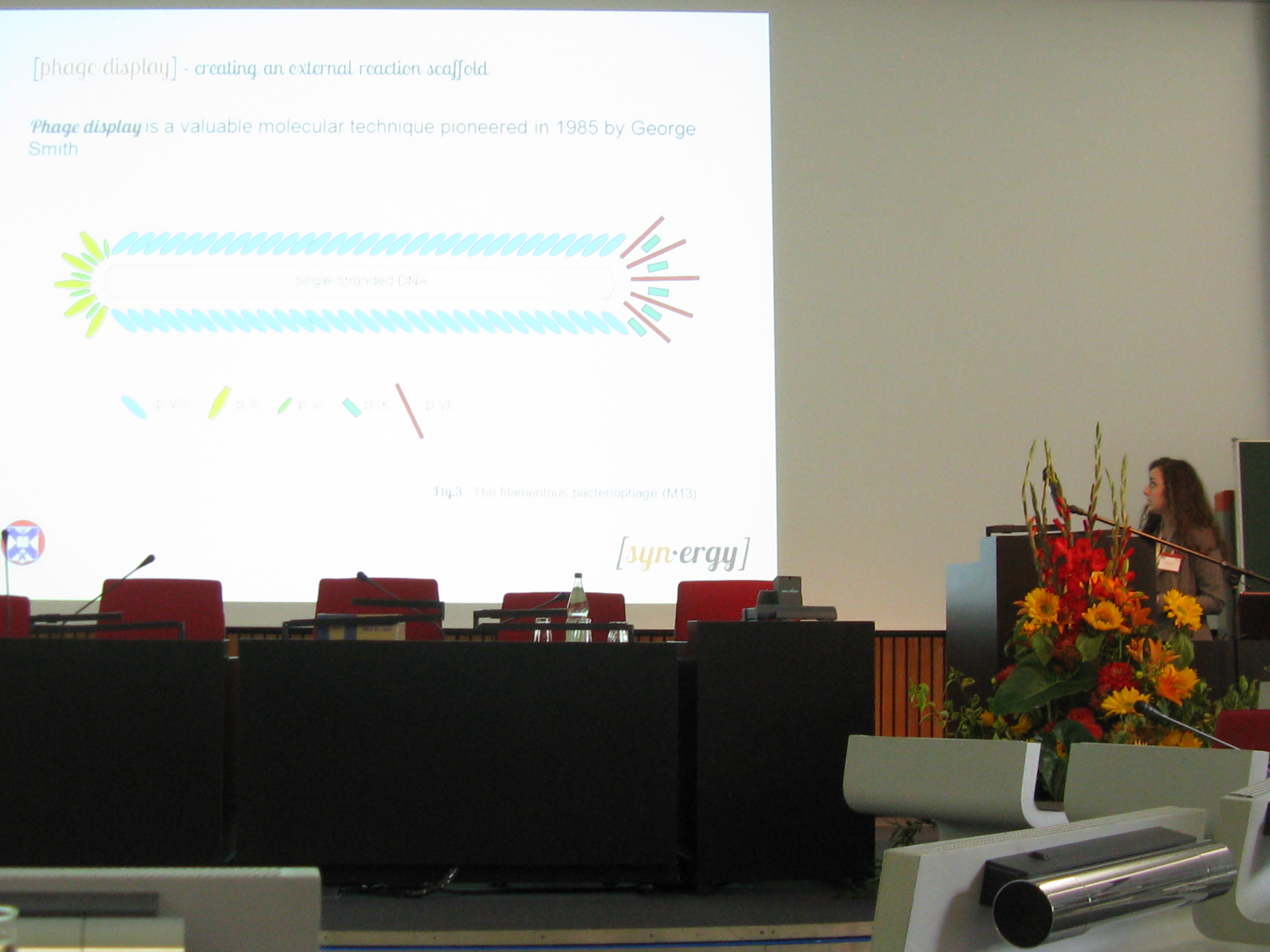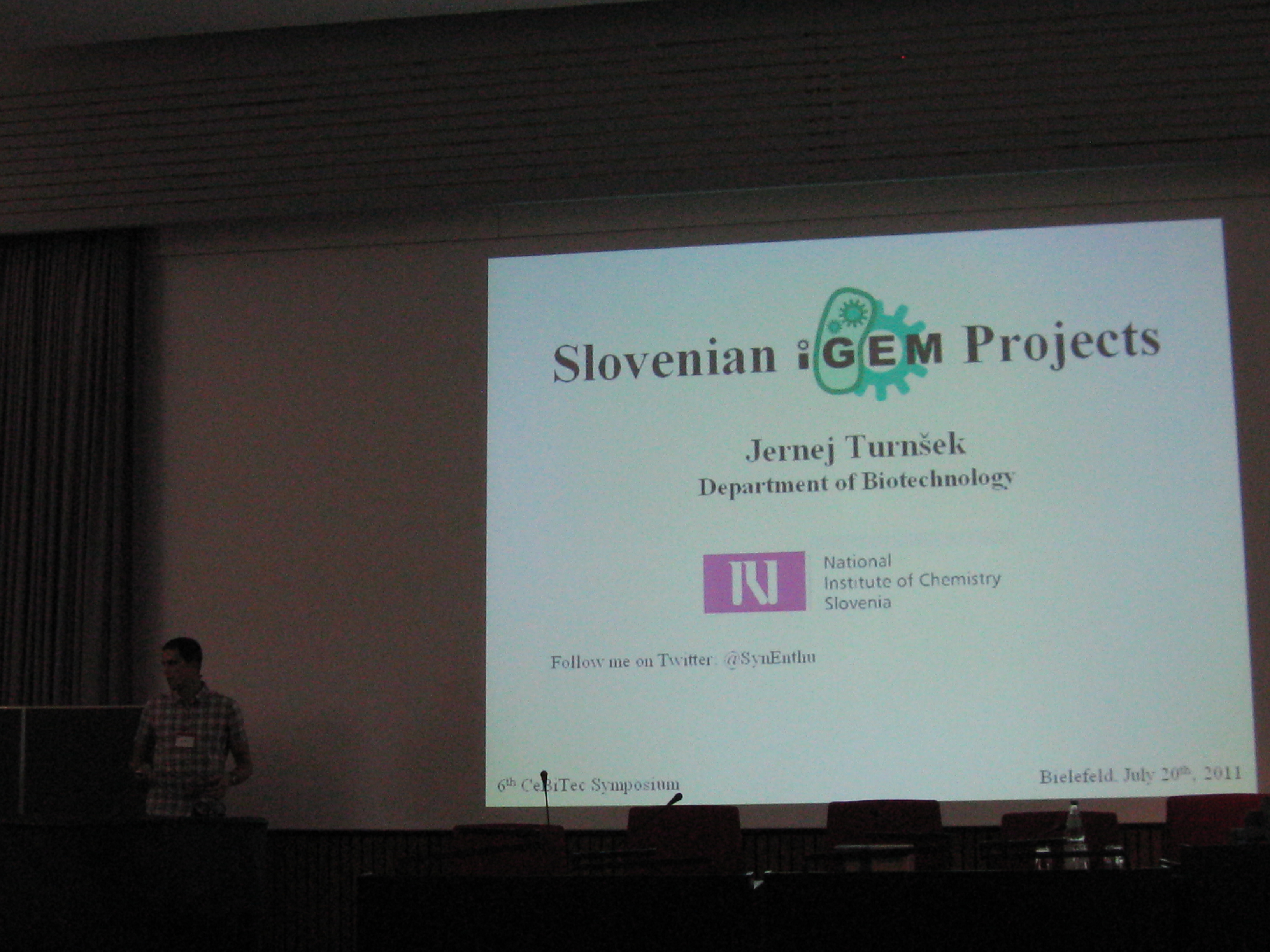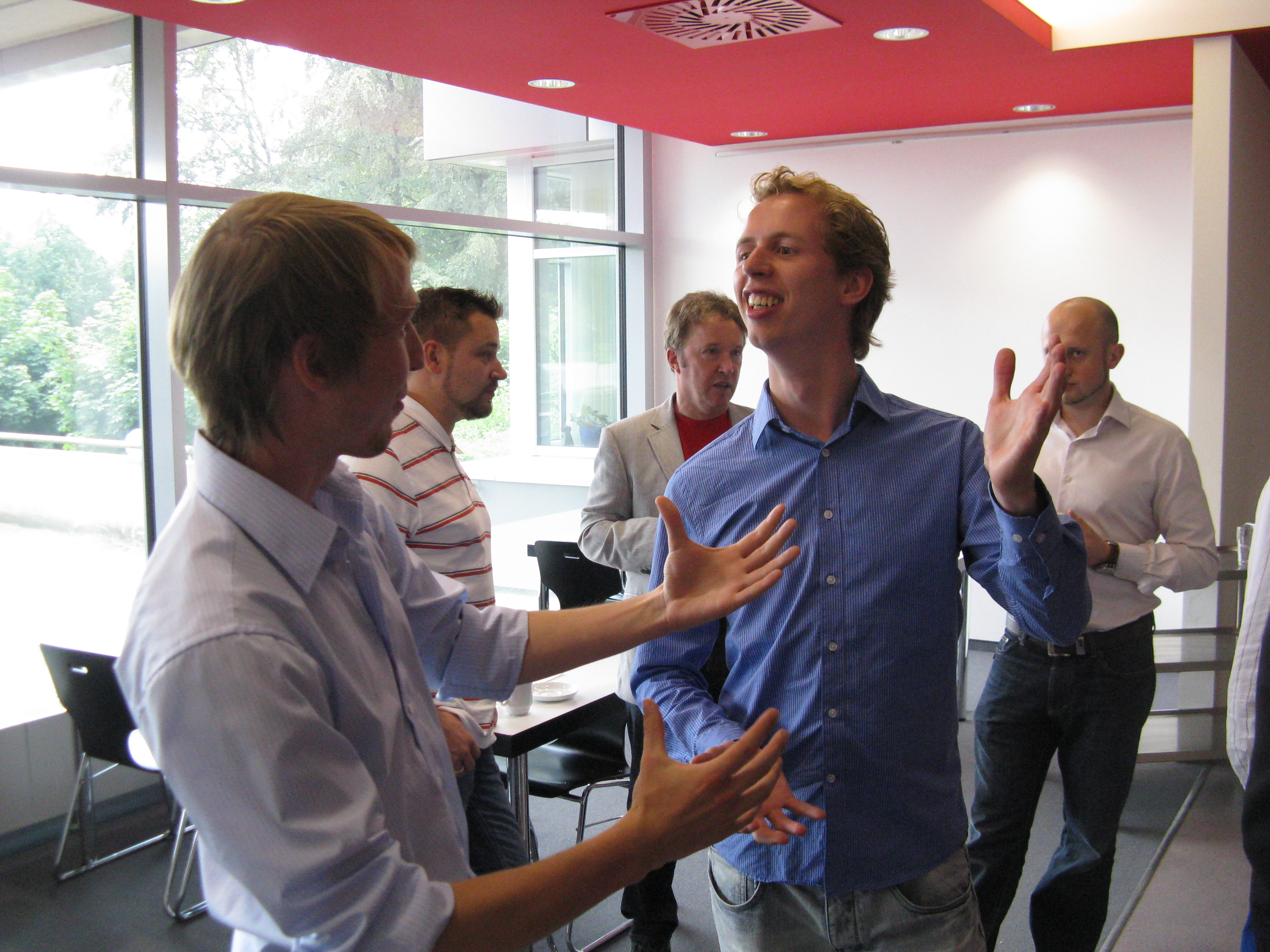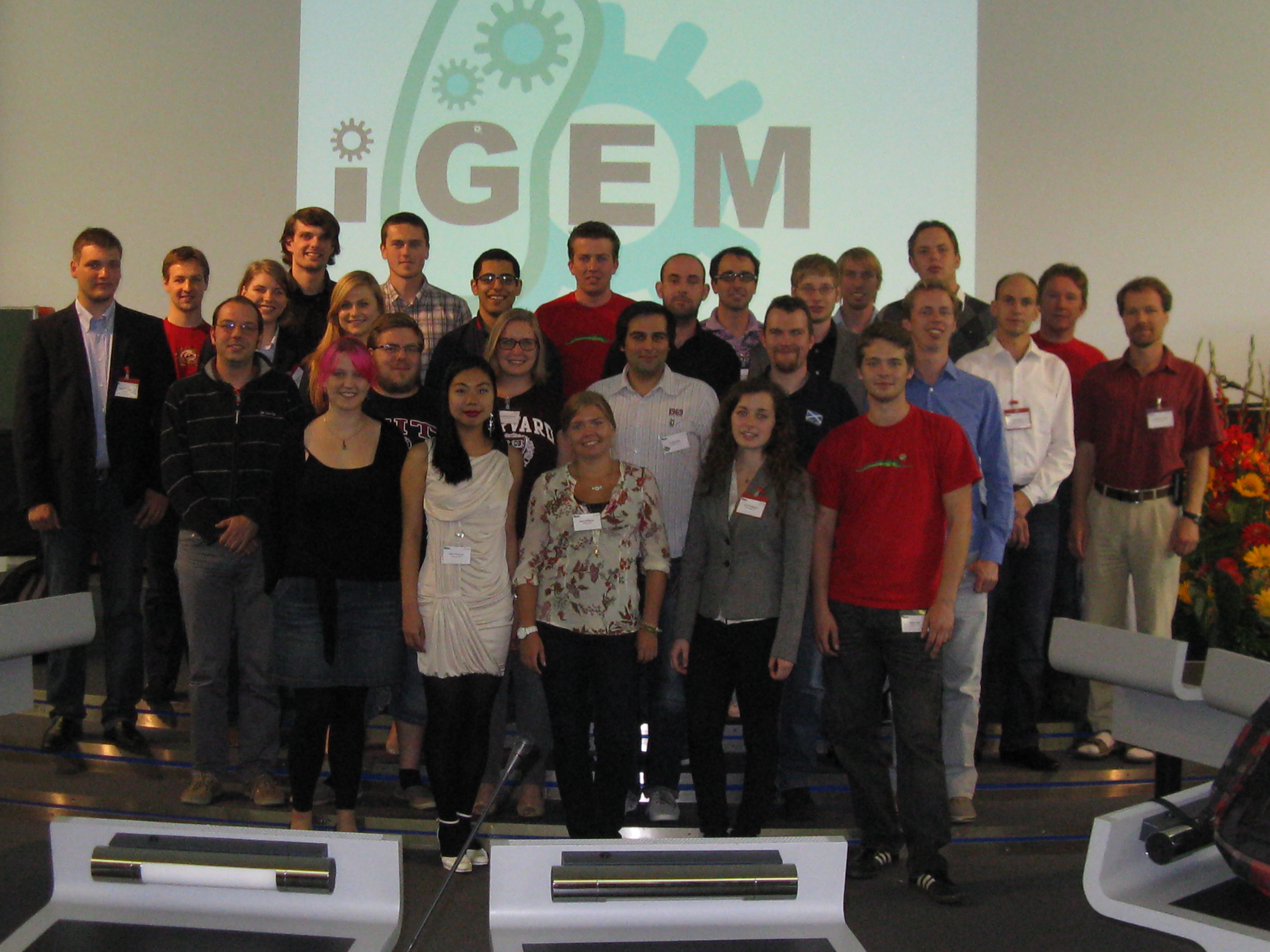Team:Bielefeld-Germany/cebitec-symposium
From 2011.igem.org
(→6th Cebitec Symposium) |
|||
| Line 27: | Line 27: | ||
Image:6thcebsymp_attendees.JPG| All attendees of the iGEM session | Image:6thcebsymp_attendees.JPG| All attendees of the iGEM session | ||
</gallery> | </gallery> | ||
| + | |||
| + | |||
| + | |||
| + | Link to the CeBiTec Symposium Homepage: | ||
| + | [http://www.cebitec.uni-bielefeld.de/content/view/209/88/ 6th CeBiTec Symposium] | ||
| + | |||
| + | Link to the other CeBiTec Symposia: | ||
| + | [http://www.cebitec.uni-bielefeld.de/cebitec/downloads/downloads.html CeBiTec Symposia] | ||
Revision as of 09:49, 9 August 2011
6th Cebitec Symposium
European iGEM teams meet in Bielefeld, Germany A review on the 6th CeBiTec Symposium Genome-Based Microbiology: From -omics Research to Systems and Synthetic Biology
The annual CeBiTec Symposium, first held in 2006, deals with prospective topics in the broad spectrum of biotechnological research. Each year international scientists come together in Bielefeld setting the focus on current innovations, approaches and methodologies. The issues so far included Solar Bio-Fuels (2008), bioIMAGING (2009) and New Frontiers in Microbial Genome Research (2010). The 6th CeBiTec Symposium was held under the topic Genome-Based Microbiology: From -omics Research to Systems and Synthetic Biology took place between the 18th and 20th of July, 2011. As this year’s topic included Synthetic Biology, this offered the opportunity for the iGEM team Bielefeld to add an iGEM session to the symposium’s agenda. The students accommodated five teams from all over Europe to present and discuss their past and future projects in front of the international scientific community.
Starting with one of the last year’s finalist TU Delft’s 2010 iGEM project about the conversion of different hydrocarbon sources in aqueous environments, all attending teams presented their results and strategies. The team from the University of Southern Denmark, Odense, presented their 2010’s project Flow E. The aim was to develop a biological system, which is able to generate flow in a fluid-filled tube by inducing the flagella movement with light by the use of a photosensor. This year’s iGEM Team from the University of Edinburgh aims to use and convert plant biomass, especially cellulose, to fermentable sugars like glucose. Therefore several cellulases are fused to a coat protein of the M13 bacteriophage. Ultimately the team’s goal is to create a biorefinery system to convert complex glucans into higher value products. The last year’s medicine track winner Freiburg presented their virus construction kit for therapy use. They managed to create different BioBricks and devices for individual virus construction. Last year’s grand prize winner Slovenia gave the audience a brief historical overview of all Slovenian iGEM projects so far. The session closed with the talk of the Team Bielefeld dealing with their topics from 2010 – a modulated two component sensor system for detection of capsaicin – and a preview for 2011 – nanobiotechnolgical S-layer based Biosensor for bisphenol A.
Additionally, the students used the opportunity to share and exchange their iGEM experience and their ideas of Synthetic Biology at the symposium and at the social events provided by the iGEM Team Bielefeld. The symposium’s iGEM session was a success and hence indices that the iGEM idea reached the scientific community.
Some expressions from the CeBiTec Symposium:
Link to the CeBiTec Symposium Homepage: 6th CeBiTec Symposium
Link to the other CeBiTec Symposia: CeBiTec Symposia
 "
"
